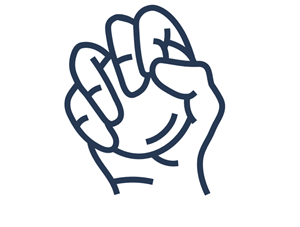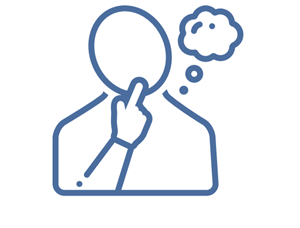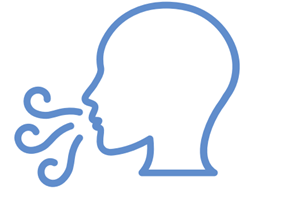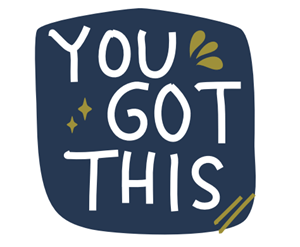Video
Stress Relief Tips for Persons with Learning Disabilities
Skills to de-stress - pick a few of these exercises to try. Practice a few times every day to help make a new habit. With practice, you will be able to use these exercises later when you are having a stressful day.
Tap to flip the cards.

Stress ball
Squeeze the ball for 3 seconds.
Count 1, 2, 3.
Then let go.
Feel your hand relax and go loose.
Do this a few times.

Favorite memory
Carry a favorite photo of a happy memory on your phone or in your wallet.
Look at the photo and think about that happy time for a few moments.
Remember what you did and how it felt.
Watch how your body relaxes when you are thinking happy thoughts.

Music
Songs can calm you.
Pick 1-2 songs you like that can help you feel calm.
Music can also rev you up.
Pick 1-2 songs that fill you with energy.
Practice listening to your special songs when you need them.

Breathing 4-7-8
Practice slow and easy breathing to help you feel calm using the numbers 4-7-8.
Close your eyes, sit in a relaxing position with your muscles loose.
Take a slow breath in counting to 4, hold that breath counting to 7, and then slowly blow the air back out counting to 8.
Do this 3 times slowly.
Then open your eyes.
Feel how your body is more relaxed from taking just 30 seconds to unwind.

Pep talk
Write down a few words to cheer yourself and keep this list in your phone or your wallet.
Read this to boost yourself when you need it.
“You’ve got this!” “You are fabulous!” “You know you are ready!” “You are brave.”

Walk in nature
Try taking a break outside in a green space.
Take a short walk.
When you are outside, notice the feel of the sun or the breeze.
Listen for birds chirping. Smell the air. Look at the sky. Feel the touch of the grass or a flower.
Try out all your senses.
This type of exercise is called mindfulness.
Balloon Stress Game
This game from England helps you float your worries away. If you need help talking to someone here in the U.S., call 988 or your counselor.
Bonus Tips!
You can practice squeezing and relaxing other muscles too.
Sit in a chair and lift both your legs straight out in front of you and hold them for 1, 2, 3, then let them relax on the floor again.
Feel your legs go loose.
Notice the difference between squeeze and relax.
Try this video from Bridging the Gapp Newfoundland Labrador.
You can use phone apps like Headspace or Calm to help you practice.
You can also try putting your hand over your heart when you take the deep breaths.
Feel your hand move up and down as you breathe.
Use a pinwheel or blowing bubbles to help you focus on your breathing in and out.
Grounding activities help us use our senses.
They help you separate in the moment from stressful memories.
Try this video - 5,4,3,2,1 Grounded
From Kazzum Arts
Connect with friends and family
1. Do things with others who are important to you.
Often this helps you feel safe and supported.
Having a circle of friends and family who understand you gives you a boost in life.
Sometimes online support groups are also good.
2. Pick hobbies you like and make time to do them.
What do you like?
Draw, swim, read, run, do puzzles, garden, watch a movie or play a video game.
Share with others who enjoy the same hobbies.
3. Care for an animal.
Pets can be very soothing.
They often know what you need and stay close to support you.
Spending time loving an animal can lower a person’s blood pressure.
If you don’t have a pet, maybe you can volunteer with pets who need you.
4. Get help from a professional.
Like your doctor, if your stress isn't helped with these healthy habits.
CDC's Coping with Stress
Learn more from the Centers for Disease Control and Prevention on how to cope with stress.





